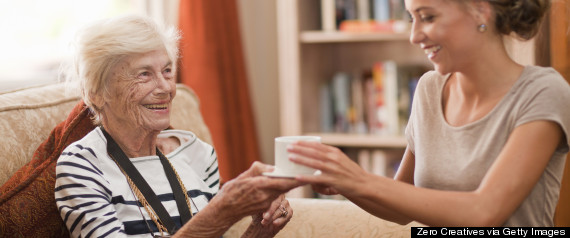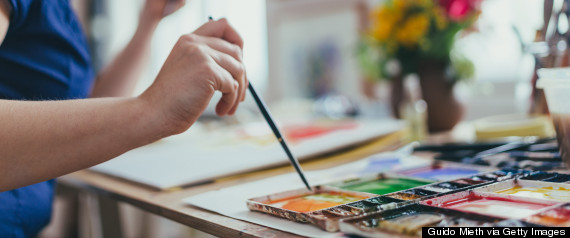
Grand gestures and philanthropic acts are wonderful, but they're just that -- grand. They require time, planning and, often, a substantial financial investment.
Fortunately, research has shown that smaller acts can have serious payoffs as well, both on the giving and receiving end. Everyday kindness has been linked to everything from improved happiness to decreased inflammation in the body, as David Hamilton, author of Why Kindness Is Good For You has explained.
With that in mind, here are just a few extremely simple, decidedly doable ways to give back and be kind ... today.
1. Make a personal connection.

So-called "pro-social behaviors" -- voluntary social acts aimed at benefiting others -- are contagious (those on the receiving end tend to pay it forward) and lead to longterm improvements in happiness and overall life satisfaction on the giver's end, according to Sonja Lyubomirsky, a professor of psychology at the University of California Riverside who has researched the topic. "We've found that social kinds [of kindness] have somewhat bigger effects overall," she told The Huffington Post. "It could be, 'I helped my sister with her homework,' or 'I helped someone carry a package.'"
"During your day make a personal connection with people you might normally tend to pass by and take for granted: the checkout clerk, the cleaning crew at your office or your hotel, the barista in the coffee shop," HuffPost's editor-in-chief Arianna Huffington urges in her latest book Thrive. "See how this helps you feel more alive and reconnected to the moment."
2. Make someone's day easier.

While pro-social behaviors are great, kindness doesn't have to be face-to-face in order to matter.
"Instead of leaving your shopping cart in the middle of the parking lot when you're at the grocery store, make someone's job easier by returning it to where it belongs," the Random Acts of Kindness Foundation urges on its website.
Donating a small amount of money to an organization you believe in, or putting money in a parking meter for the next person who comes can also make a big difference, Lyubomirsky said. Or take a cue from the numerous news stories on spontaneous "pay it forward" coffee events, such as the streak that lasted for 11 hours at a Starbucks in Florida last August, in which 378 customers bought beverages for the person behind them in the drive-through line.
3. Use the talents you've already got.

You don't have to go out of your way to donate money or do something new and different in order to be kind; you can absolutely use what you've already got in your arsenal, Arianna writes in Thrive. "Use a skill or talent you have -- cooking, accounting, decorating -- to help someone who could benefit from it," she writes. "It’ll jumpstart your transition from a go-getter to a go-giver."
Lyubomirsky's research has found the initial boost one experiences after doing something kind may dissipate as it becomes a habit, but there is also evidence that small moments of kindness can lead to something she called the "upward spiral effect." Cooking someone a delicious meal might make you feel good about yourself, more connected with the rest of the world and, in turn, lead you to forge new social connections. One small moment can have a positive ripple effect.
4. Forgive someone.

Whether it's related to something big or small, forgiveness has obvious benefits for the person on the receiving end -- and, as the Mayo Clinic clarifies, doesn't have to mean denying the role that person played in a wrongdoing.
But the benefits extend inward, too. As Mayo reports, forgiveness has been linked to healthier relationships, greater overall well-being, decreased stress and anxiety, as well as improved physical outcomes, such as lower blood pressure and lower risk of alcohol and substance abuse.
5. Meditate.

Meditation is not an inherently pro-social behavior (though one could well argue that taking time to meditate is a way of showing kindness toward oneself). But research has shown that loving-kindness meditation, in which one directs positive thoughts or wishes toward others, can help boost social connection and a sense of positivity toward others.
Time reported on a small 2013 study led by Barbara Fredrickson, professor of psychology at the University of North Carolina, Chapel Hill, in which faculty members who practiced loving-kindness meditation for six weeks experienced increases in joy and hope, as well as a greater sense of connection to others. As Psychology Today reported, studies have also suggested it may curb chronic pain and migraines and help increase compassion and empathy.
